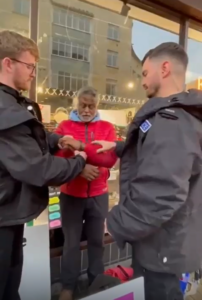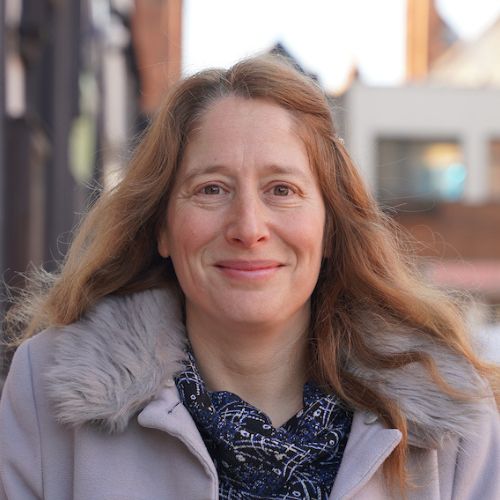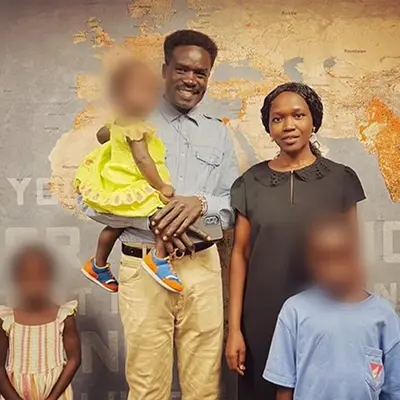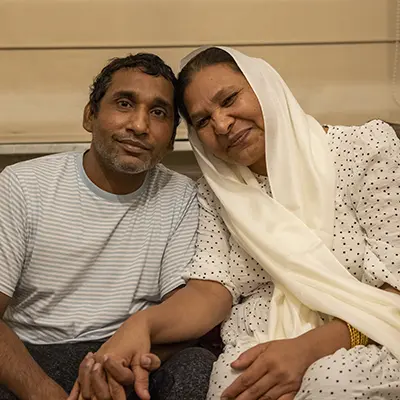- WATCH: Police arrest Isabel Vaughan-Spruce for second time relating to silent prayer “thought crime” in viral video
- Charity volunteer challenges “unnecessary” and “disproportionate” bail conditions, including an expulsion from public spaces beyond the censorial “buffer zone”
Isabel Vaughan-Spruce, who has been a volunteer for crisis pregnancy help services for twenty years, is seeking to vary her bail conditions which prevent her from being present in an area considerably larger than the buffer zone, including outside a local church where she leads a group of volunteers in prayer and charitable support.
Vaughan-Spruce was arrested on 6th March for praying in a so-called “buffer zone” around an abortion facility on Station Road in Birmingham. The zone is imposed by a local Public Spaces Protection Order (PSPO), available here.
The arrest came only weeks after the Birmingham Magistrates’ Court returned a “not guilty” verdict for charges related to Vaughan-Spruce’s silent prayers within the same censored “buffer zone” in December.
WATCH: Isabel Vaughan-Spruce arrested for a second time over silent prayer “thought crime”
“Legal Insult Upon Injury”
The conditions have been imposed during the Lent season, which is one of two periods during the year that a group of Christian volunteers gather to pray in a community outreach campaign known as “40 Days for Life”.
West Midlands police have applied the bail conditions for three months, which is the maximum period available under the Police, Crime, Courts and Sentencing (PCSC) Act 2022.
Under the terms of the Act, Vaughan-Spruce may be bound by the onerous conditions despite not yet being formally charged following her arrest.
“Nobody should be criminalised for the thoughts that they hold in their head. In my case, the process has become the punishment. Though I was proven innocent in a court of law for praying in my head only weeks earlier, I have now not only been re-arrested for the exact same lawful and peaceful thoughts, but also have been served expansive bail conditions that seriously impact my life,” commented Isabel Vaughan-Spruce.
“My prayer group had decided to meet to pray outside of the ‘buffer zone’ to avoid any confusion, and yet even though they took this precaution, I have been forbidden from joining them where they are because of my bail conditions,” she continued.
“If ever there was a case of legal insult upon injury, the repeated attempts to criminalise Isabel’s prayers is it. Isabel has already been dragged through the court system simply for thinking peaceful thoughts in her own head. On her first arrest, police officers imposed unreasonable bail conditions which sought to extend an already draconian buffer zone and prevent her from speaking to a local priest. This was rightly overturned, before the CPS offered no evidence on her charges and the courts returned a not guilty verdict. Now, again, officers have used newfound powers to impose excessive bail conditions on Isabel, dragging out the length of time in which she waits to hear about her fate. This is, in effect, a sentence on Isabel through the backdoor – without reference to the prosecution or the courts,” commented Jeremiah Igunnubole, legal counsel for ADF UK, who are supporting Isabel’s legal defense.
In 2022, ADF UK and other civil liberty groups warned that broadly drafted laws under the Police, Crime, Sentencing and Courts (PCSC) Act 2022, will inevitably be used by police officers to erode the most basic of freedoms.
This concern is compounded by Free Speech Union’s recent report which found that approximately 78% of the police forces are providing no or inadequate training on freedom of speech.







